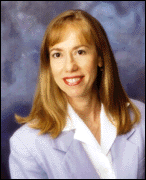

![]()
Pacific Perspective


![]()
Pacific Perspective
Opportunity in Vietnam
Vietnam. Hardly any country elicits such an emotional response from Americans.
Memories of the Vietnam conflict still haunt the conscience of American baby-boomers, no matter which side of the issue they were on in their youth. However, Vietnam today is not the same country that many Americans remember. Since the launching of doi moi policy in 1986, Vietnam has made remarkable progress in economic development.
Economic growth rates of 8 percent to 9 percent over the past 10 years have reduced poverty by 33 percent. Adult literacy is greater than 90 percent and life expectancy has increased to nearly 68 years. Although the annual per capital GDP is still only about $400, on my recent visit Hanoi, I perceived a standard of living that seems much higher. And more than anything, I was struck by the resourcefulness of the people, and the pervasiveness of a young and vibrant leadership.
The official normalization of U.S.-Vietnam relations in 1994 opened the door for increased opportunities for American companies in Vietnam. However, bad experiences have caused American firms to pull back from their initial enthusiasm for a foothold in Vietnam. Fortunately for American business, USAID assistance in Vietnam is growing and is increasingly focused on helping Vietnam implement the U.S.-Vietnam Bilateral Trade Agreement, which went into effect Dec. 10, 2001. Implementation of this agreement will do much to create a legal and regulatory infrastructure in Vietnam that will enhance the chances for success of American businesses there.
The first step in enacting the agreement has been a detailed assessment of the laws, regulations and administrative procedures in Vietnam that may need to be adjusted. Next, an economic analysis is being completed, accompanied by public seminars and training programs to enhance understanding of the BTA. Training is particularly important within the legal structures and governmental agencies that will implement the new laws and regulations.
The next phase will be focused on trade in goods and services, as well as protection of intellectual property rights. To meet the obligations of the BTA, new laws and procedures for commercial arbitration, e-commerce, customs reform, and intellectual property rights enforcement must be enacted. Workshops for legal, accounting, insurance and tax professionals will be ongoing throughout the next few years.
On the social front, USAID has two other program areas that also provide potential opportunities for Hawaii service providers. One program focuses on improved access and services to vulnerable populations. This includes support for programs in HIV/AIDS prevention, supporting people with disabilities, initiatives to promote maternal and child health, and disaster mitigation and preparedness. For example, one of our professors of marketing is working with the Vietnam National University School of Public Health to examine patient satisfaction in Vietnam.
The third focus of USAID programs is on improved urban and industrial environmental management. These initiatives focus on the need for a revised regulatory framework for environmental protection as well as improved urban infrastructure, and cleaner production and responsible disposal of waste. Hawaii's expertise in environmental management is sorely needed to prevent further environmental damage as the country strives for rapid economic development. A second-city relationship between Hue and Honolulu, established in late 2001, may provide an entry point for Hawaii's environmental services professionals to partner on projects in Vietnam.
Vietnam still has a long way to go to meet the west's expectations with regard to an acceptable business environment. But it is moving rapidly toward that goal. Hawaii businesses may want to keep an eye on the situation to look for opportunities that become available in an environment of rapid change.
Shirley J. Daniel is the Henry A. Walker Jr. Distinguished Professor of Business Enterprise at the University of Hawaii College of Business Administration. Reach her at Daniel@cba.hawaii.edu.